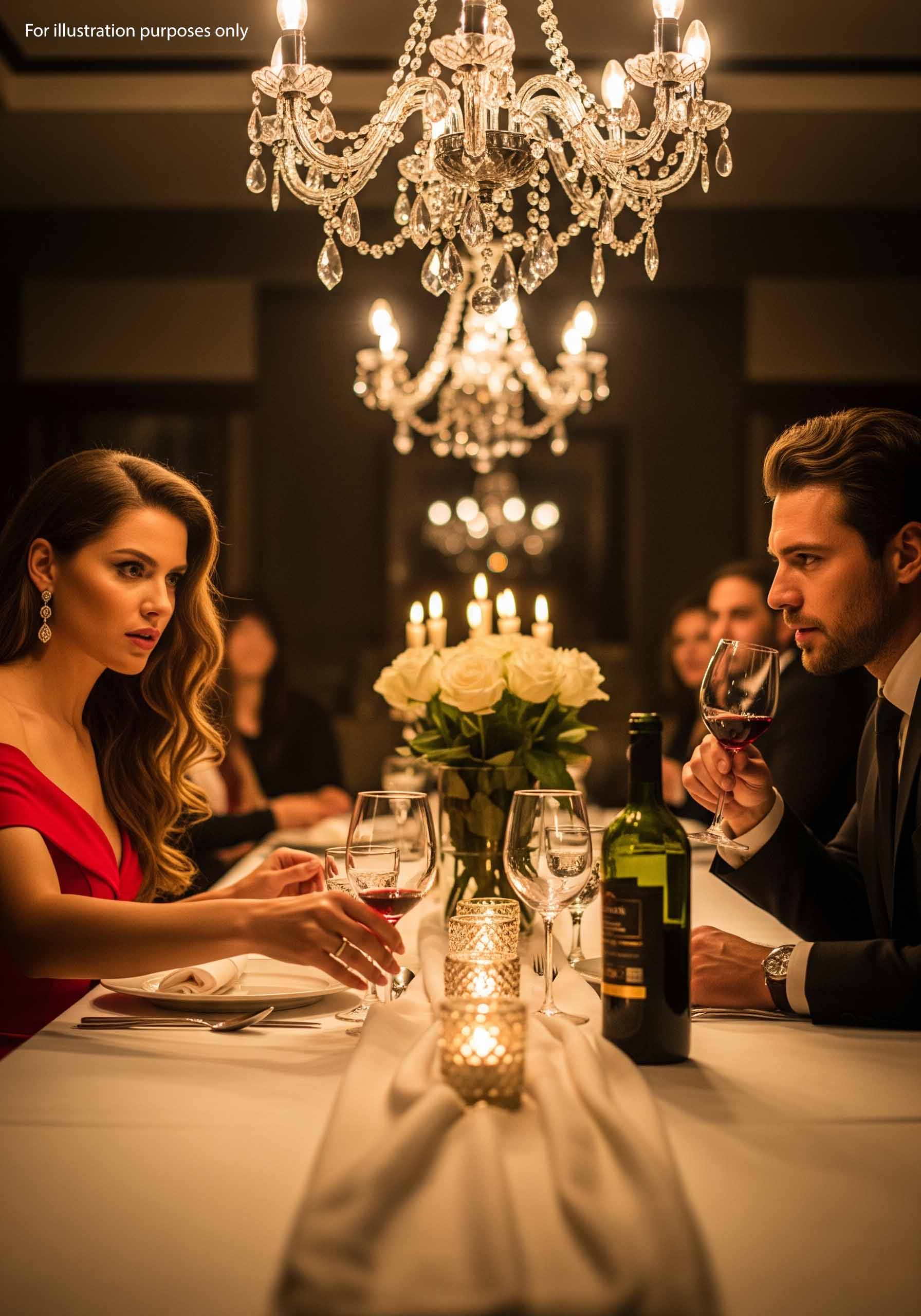The night of our wedding anniversary should have been nothing more than clinking glasses, quiet laughter, and the warm glow of candles.
Instead, it became the first move in a game I didn’t know I was playing.
We were surrounded by family. My husband raised his glass with an unreadable smile. I mirrored him—until I caught it.
A subtle tilt of his wrist.
A few drops of something slipping into my wine.
A cold knot coiled in my stomach. I didn’t blink. I didn’t breathe. I simply waited for the moment he turned his head, then switched my glass with the one belonging to his sister, seated beside me.
Ten minutes later, our glasses touched. We drank.

And she collapsed.
Chaos erupted—chairs scraping, shouts filling the room. My husband’s face twisted into surprise so convincing I almost believed him. Almost.
But then he whispered, barely loud enough for me to hear:
“No… she shouldn’t have been drinking. I switched the glasses…”
My heart stilled. So I was right. Whatever he planned, it had been meant for me.
That night, while the others swarmed to the hospital, I sat at our table as if nothing had happened. He approached later, his voice forced into concern.
“How are you feeling?”
“Fine,” I said evenly. “And you?”
He hesitated.
From that moment, I knew the rules had changed. And I would not play the same way twice.
The next morning, I visited his sister in the hospital. Pale, trembling, but alive. The doctor’s words were blunt:
“Serious poisoning. A little more, and she wouldn’t be here.”
At home, he asked, “How is she?”
“Alive,” I replied. “And I remember the glasses weren’t in the same place.”
His fingers twitched. “What do you mean?”
“Nothing yet,” I said softly. “Just an observation.”
That night, he didn’t sleep. Neither did I—except I spent my hours digging.
Pharmacy receipts. Call logs. Screenshots of messages from an unknown number:
“After the anniversary, everything will end.”
I became the perfect wife again. Cooking his favorite meals. Smiling at the right moments. Collecting everything I needed.
One week later, by the fire, he lifted his glass.
“To us.”
“To us,” I echoed—but left my drink untouched.
The knock at the door was perfectly timed.
Two men stood there—one a policeman, the other a private detective.
“Citizen Orlov, you are under arrest on suspicion of attempted murder.”
His face drained. “You set me up?”
“No,” I said, stepping closer. “You set yourself up. I just stayed alive.”
Two months passed. He sat in a detention cell, all evidence stacked against him. But then came a call.
“He wants to see you. Says he’ll tell you the truth—only you.”
Curiosity outweighed caution.
Leaning close through the glass, he murmured,
“You weren’t the target. It was for her. My sister. She knew too much.”
I froze.
“Check her phone,” he said. “Then we’ll talk.”
The truth unraveled in whispers and old data.
Her tablet held messages to someone under the name M.O.:
“If she doesn’t leave on her own, we’ll arrange an accident. My brother needs incentive.”
The sister he tried to erase had already planned to erase me.

And M.O. wasn’t a single person—it was a network. A shadow service for those with “problems” too big for the law.
My husband wanted her gone. She wanted me gone. And M.O. could make either happen.
I chose differently. I approached them myself—under another name.
“Do you want revenge?” they asked.
“No. I want control.”
Power changes you. Soon, I could move lives like pieces on a chessboard. People whispered my name in fear—though never my real one.
Then, one night, an unmarked envelope slid beneath my door. Inside—my photo, and three words:
“You’re not the first.”
The game I thought I had mastered… was someone else’s board entirely.
M.O. vanished. The network fractured. People disappeared.
Now I live without a name, without a past—only the steady knowledge that someone, somewhere, is watching.
And when they make their move, I’ll be ready.